The case for the PS5 Pro is a curious one. The PS4 Pro had a clear and concise pitch: Bringing 4K gaming to the PlayStation ecosystem. But the reason to fork out $699 / £699 / AU$1,199 for a PS5 Pro isn’t quite so obvious. Especially because even almost four years into this current console generation, it still feels like the base PS5 has untapped potential.
After spending some time putting the best PS5 games through their paces on the PS5 Pro it’s immediately clear this new console is a gaming beast. You almost certainly won’t get better visual quality or performance on any rival system including the Xbox Series X (the Xbox Series S or Nintendo Switch don’t even enter the conversation). However, the PS5 Pro is not a generational leap. Don’t mistake this new machine for the practically inevitable PS6.
The graphical improvements in popular titles like Marvel’s Spider-Man 2, The Last of Us Part II Remastered and Horizon Forbidden West are certainly notable, and for the most dedicated PlayStation players who want to enjoy console gaming at its absolute peak, the PS5 Pro is an easy recommendation. However, for everybody else, things get a little more complicated.
The high barrier to entry means the PS5 Pro has positioned itself as a tough sell for more casual players, especially those who aren’t planning to hook their console up to one of the best TVs you can buy. It’s an extravagant purchase that doesn’t offer the same value for money that can be found in the base PS5, which remains an extremely capable console.
So if you’re wondering whether to go Pro or not, let’s dive into my full PS5 Pro review. I’ll walk you through the ups and downs of this uber-powerful console and explain why I think it’s the best PlayStation hardware ever, but one that will not appeal to every type of gamer.
PS5 Pro review: Cheat Sheet
- What is it? The PS5 Pro is a mid-generation upgrade of the PS5 console, which was released in November 2020. It offers the same fundamental features but with upgraded internal components. It can boost the framerate and image quality of select PS5 games.
- Who is it for? PS5 Pro is a machine targeting the most dedicated console players looking to enjoy blockbuster titles at their most visually appealing. It’s also a great pick for players who crave increased options as some PS5 Pro Enhanced titles offer multiple play modes, and the ability to tweak graphical settings to your liking somewhat similar to playing on a gaming PC.
- What does it cost? The PS5 Pro costs $699 / £699 / AU$1,199. This is a substantial increase from the standard PS5 Slim which currently retails for $499 / £479 / AU$799.
- Does it include a disc drive? The PS5 Pro does not come with a disc drive. Out of the box, it’s a digital-only console. However, you can purchase a PS5 disc drive separately and install it yourself (the process is extremely simple). A PS5 disc drive costs $79 / £99 / AU$159.
- Are there PS5 Pro exclusive games? At launch, there are no PS5 Pro exclusive games. The console is compatible with the entire PS5 library, and the vast majority of PS4 games.
PS5 Pro review: Specs
| Row 0 – Cell 0 | PS5 Pro | PS5 Slim | Xbox Series X |
| Price | $699 | $499, $449 (Digital) | $499 |
| Processor | AMD Zen2, 8 cores / 16 threads | AMD Zen2, 8 cores / 16 threads | AMD Zen2, 8 cores / 16 threads |
| GPU | AMD RDNA 2, 16.7 teraflops | AMD RDNA 2, 10.3 teraflops | AMD RDNA 2, 12 teraflops |
| RAM | GDDR6 16GB, DDR5 2GB | GDDR6 16GB | GDDR6 16GB |
| Storage | 2TB SSD | 1TB SSD | 1TB SSD |
| Disc drive | Optional add-on | 4K UHD Blu-ray | 4K UHD Blu-ray |
| Ports | 2 x USB Type C, 2 x USB-A, 1 x Ethernet, 1 HDMI | 2 x USB Type C, 2 x USB-A, 1 x Ethernet, 1 x HDMI | 3 x USB Type A, 1 x Ethernet, 1 x SSD Expansion, 1 x HDMI |
| Dimensions (approx) | 15.28 x 3.50 x 8.50 inches | 14 x 3.7 x 8.50 inches | 11.85 x 5.94 x 5.94 inches |
PS5 Pro review: What we like
The most powerful PlayStation ever
Based on raw specs, the PS5 Pro is the most powerful console ever released, and that clearly shows in practice. Sony has confirmed a list of more than 50 games that are PS5 Pro Enhanced from day one, and this selection includes loads of the best PS5 games including Marvel’s Spider-Man 2, Final Fantasy VII Rebirth, Ratchet & Clank: Rift Apart, Hogwarts Legacy and The Last of Us Part I. Plus, new titles are being rapidly added to the list.
As Sony’s Mark Cerny noted in the PS5 Pro technical showcase, one of the console’s biggest benefits is that it aims to eliminate the need to select between a Performance mode (favoring framerate) and Fidelity mode (favoring image quality) as is often the case on PS5.
Select games are able to offer 60fps gameplay at the same resolution as the Fidelity mode of the base PS5 (which limits gameplay to 30fps). A great example is The Last of Us Part II Remastered which uses the Pro’s improved processing power to deliver an upscaled 4K image while maintaining a rock-solid framerate. This offers players the best of both worlds.
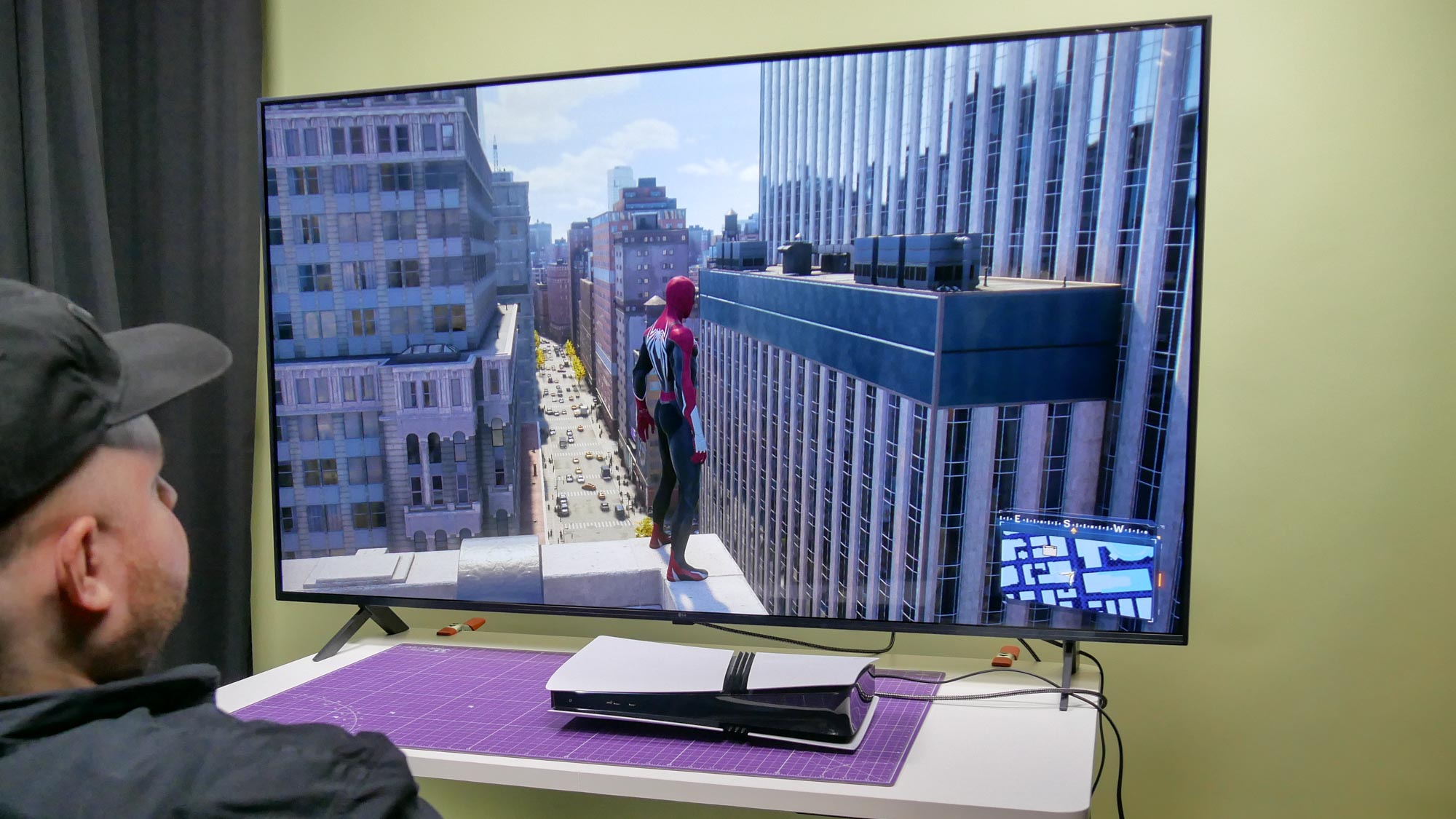
Another buzzword surrounding the PS5 Pro is ray-tracing, and it’s here you’ll notice the biggest difference. In Hogwarts Legacy, rays of light stream through stained-glass windows and bounce off the floor of the castle’s iconic Great Hall. Switch over to Alan Wake 2 and you’ll find yourself walking in front of the Oh Deer Diner windows marveling at the life-like reflections. Speaking of Marvel, in Spider-Man 2, we’ve finally got those reflective puddles that were promised way back in 2017 thanks to the ray tracing power of the PS5 Pro.
However, to get access to ray tracing features in several titles, you’ll still have to accept a lower framerate in exchange. While some PS5 games like The Last of Us Part 1 and Demon’s Souls offer just a single “Pro” mode, some titles like Ratchet & Clank: Rift Apart and Horizon Zero Dawn Remastered still ask you to choose between “Pro Performance” and “Pro Fidelity,” so the dream of no longer having to compromise hasn’t quite been achieved.
PSSR could be the future of play
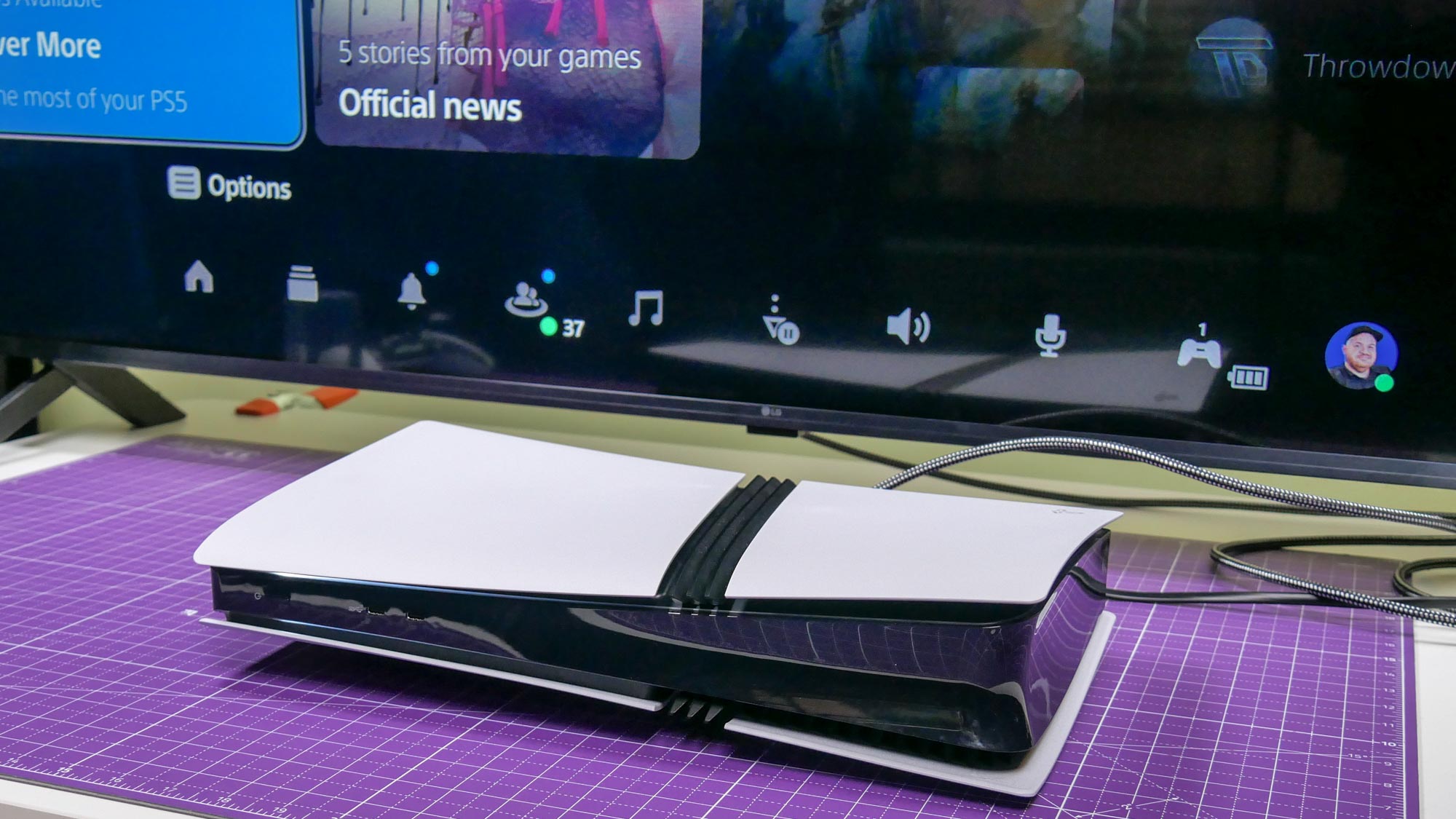
The PS5 Pro introduces the much-heralded PlayStation Spectral Super Resolution (PSSR), an AI-driven upscaler that Sony explains uses “machine learning-based technology to provide super sharp image clarity by adding an extraordinary amount of detail.”
I expect this technology will be even more impressive over the coming years as Sony’s own developers and third-party studios become more comfortable with its implementation, but the early signs are already pretty impressive. PS5 favorites like The Last of Us Part I (and Part II Remastered), Alan Wake 2, Hogwarts Legacy and Final Fantasy VII Rebirth all use PSSR to boost resolution, and EA Sports F1 24 makes use of the tech to deliver ray-tracing features.
The increase in resolution is noticeable in the vast majority of games I tested, but it’s not immediately striking. We’re talking about very fine margins of details here that often need a side-by-side comparison shot to be truly appreciated. Don’t expect the PS5 Pro to deliver transformative results. This is a console designed for those who obsess over micro details.
2TB hard drive is a money-saver
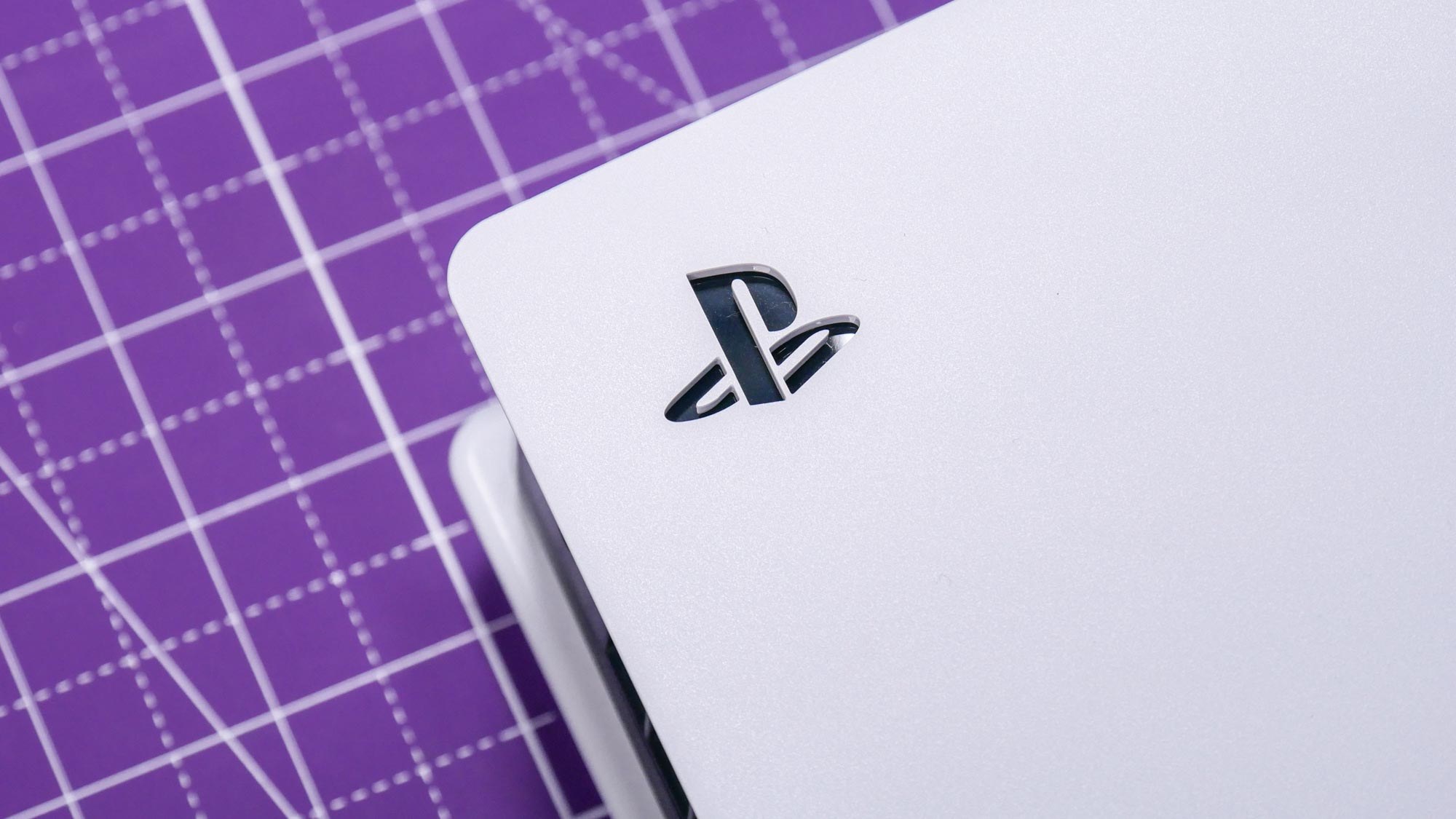
Another benefit of the PS5 Pro is that it comes with a 2TB internal hard drive (offering roughly 1.9TB of usable space). This is a significant increase from the PS5 Slim, which packs a 1TB SSD (with 850GB usable), and more than double the base PS5 unit, which offered a mere 825GB (and only 667GB of that was useable).
While the process of adding additional SSD storage is relatively straightforward, and the average price of one of the best PS5 internal SSDs has dropped considerably since I paid $270 for a 1TB WD_BLACK SN850 in the summer of 2021. Having 2TB out of the box should be enough to allow most users to install dozens of games with space to spare. This eliminates the need to purchase an additional drive for all but the most dedicated users.
Install sizes have ballooned in recent years (for example, Call of Duty Black Ops 6 demands more than 120GB, and that’s without the Warzone portion installed), but 2TB is plenty of storage to play with, and adding another SSD is once again a simple process.
PS5 Pro review: What we don’t like
The price tag is exorbitant
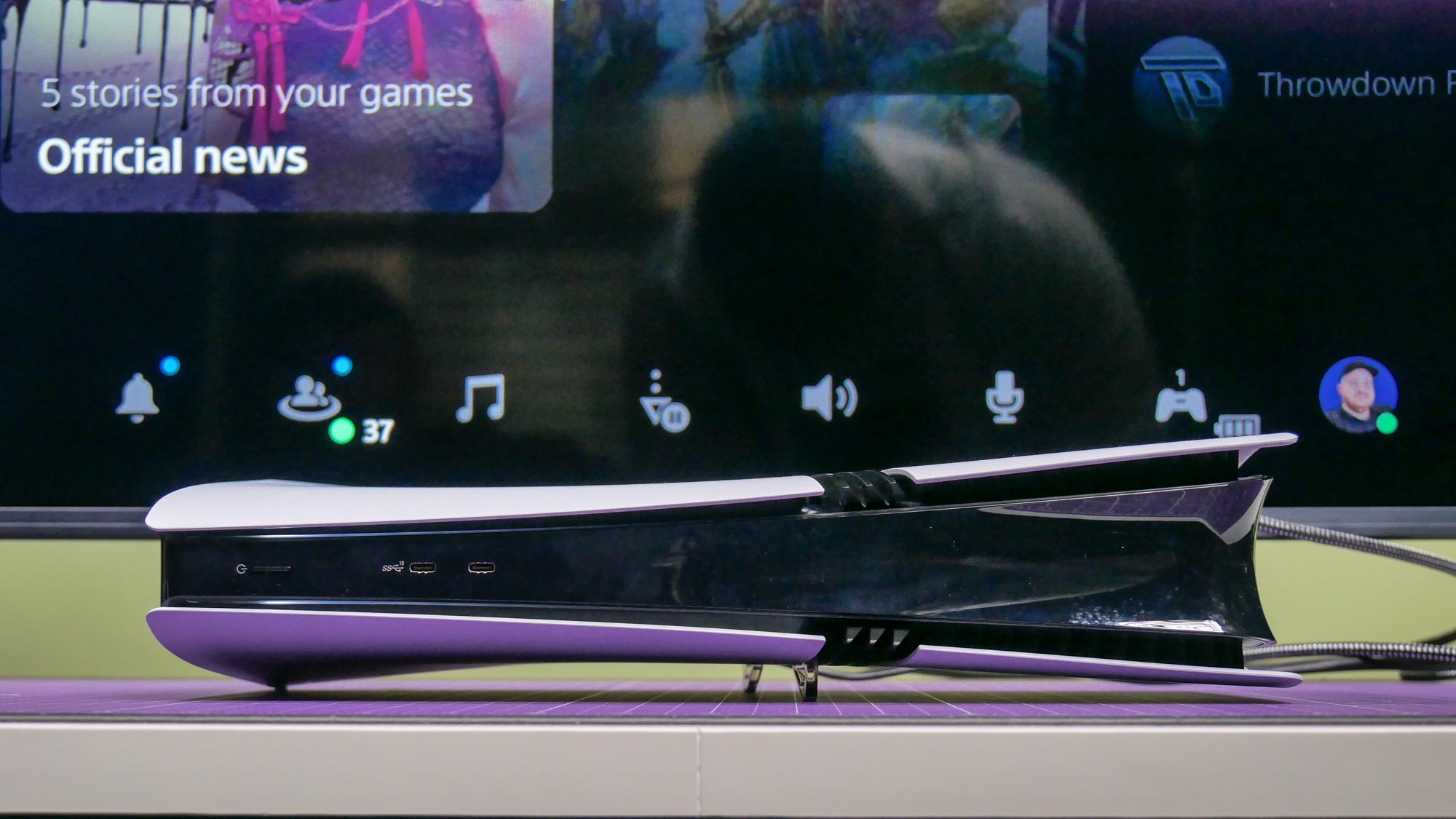
There’s no escaping that the PS5 Pro retails for an eye-watering price. Ever since its initial reveal almost any conversation surrounding the machine inevitably boils down to a debate over whether its upgraded internal components justify the wallet-stinging $699 MSRP.
In short, there’s no correct answer here. I’d wager that for some gamers, the PS5 Pro will warrant the significant buy-in cost as it does deliver the best play experience of any PlayStation console on the market. But for price-conscious consumers, it’s a much tougher sell. Especially as the graphical results are solid, but not so spectacular to be essential.
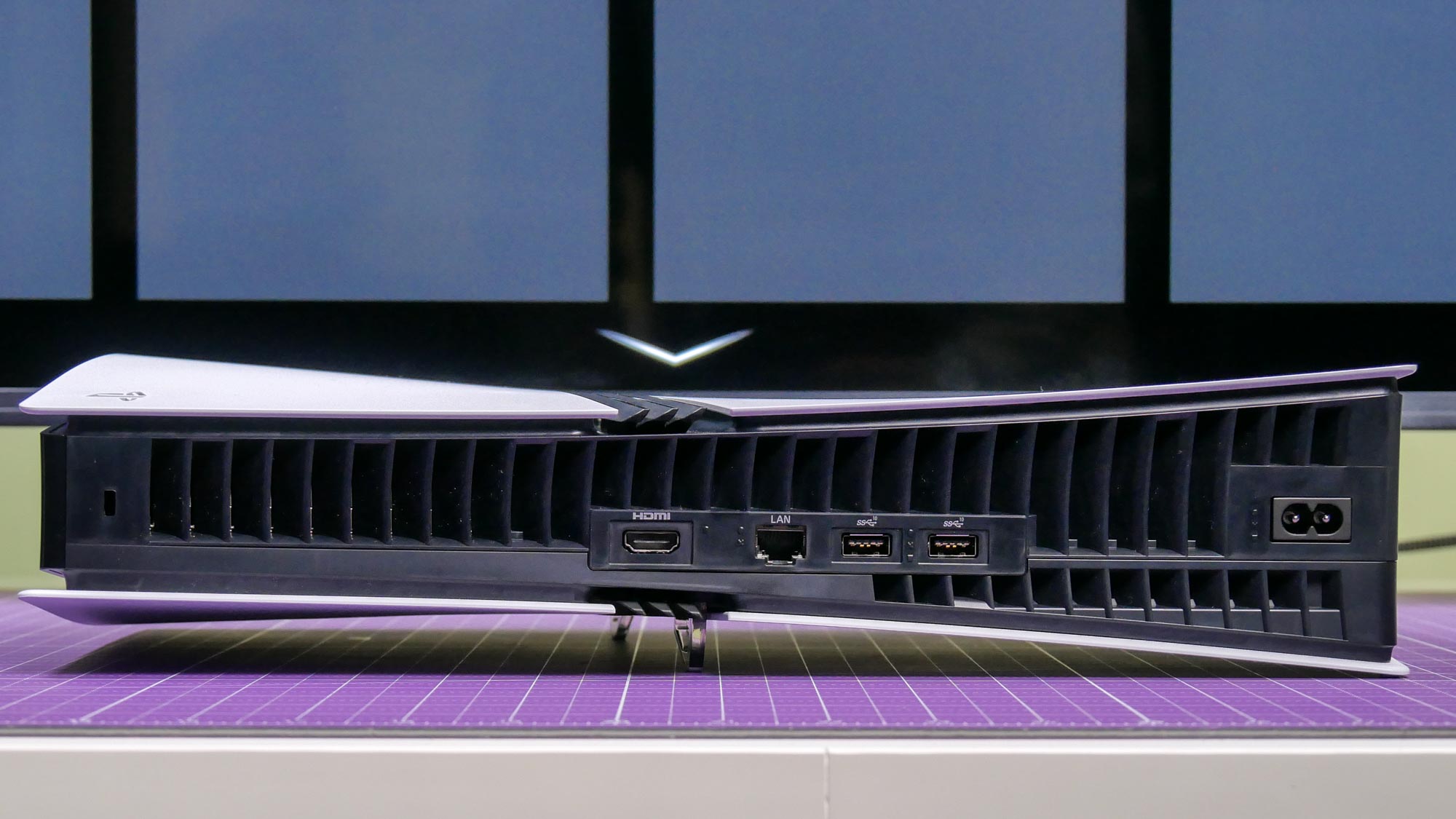
At $499 (occasional $449 during sales events), the base PS5 offers substantially better value for money than the PS5 Pro. It plays all the same games, delivers largely impressive image clarity (including 4K in select titles) and can run blockbuster games at a solid 60 fps.
The PS5 Slim is still my go-to recommendation for anybody looking to jump into this current console generation, while the PS5 Pro now represents an souped-up option for players who want the absolute best experience possible, and are willing to pay a premium for it.
Lack of a disc drive feels cheap
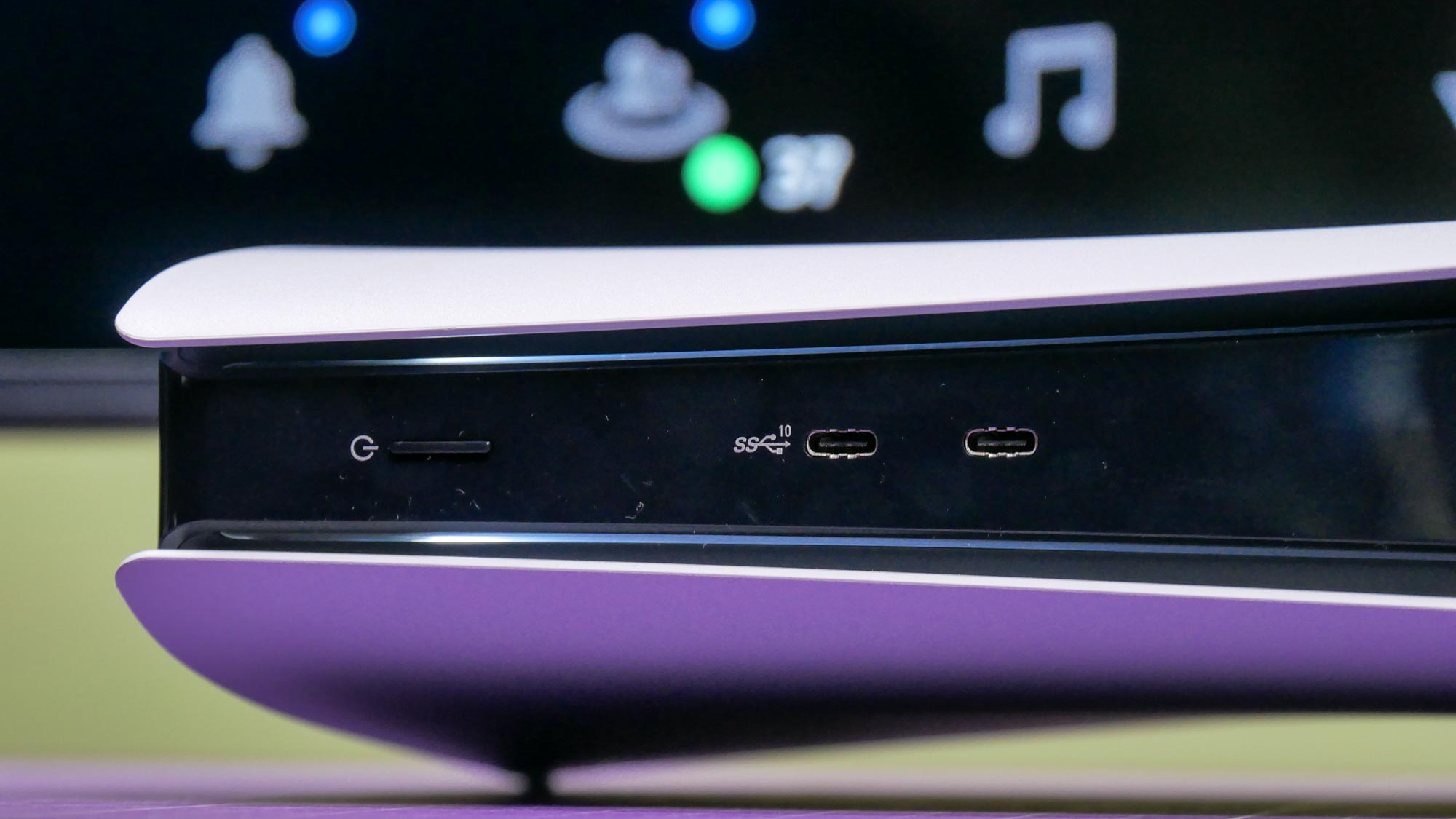
I’m generally okay with Sony opting to charge a high price for the PS5 Pro. As it’s not a full generational upgrade, it can be considered an optional upgrade for the most entrenched PlayStation fans. However, the decision to make the PS5 Pro digital only is disappointing.
I won’t deny that digital purchases are quickly becoming the standard in the console space (over on PC, the battle between physical and digital was decided years ago), but many console players still prefer to play via a game disc in 2024.
These owners have not been entirely neglected as you can easily add a disc drive to a PS5 Pro, but this requires an additional spend of $79, and when you’re already coughing up almost $700 for a console, it leaves a bitter taste to spend even more for a disc drive.
The PS5 Pro also doesn’t include a vertical stand. This is another separate purchase for $29. However, the PS2, PS3 and PS4 didn’t include a stand either, so this feels like par for the course with Sony. It was only the base PS5 model released in November 2020 that switched things up in this regard. At least the PS5 Pro comes with two clear plastic legs used to sit the console horizontally.
PS5 Pro review: Verdict
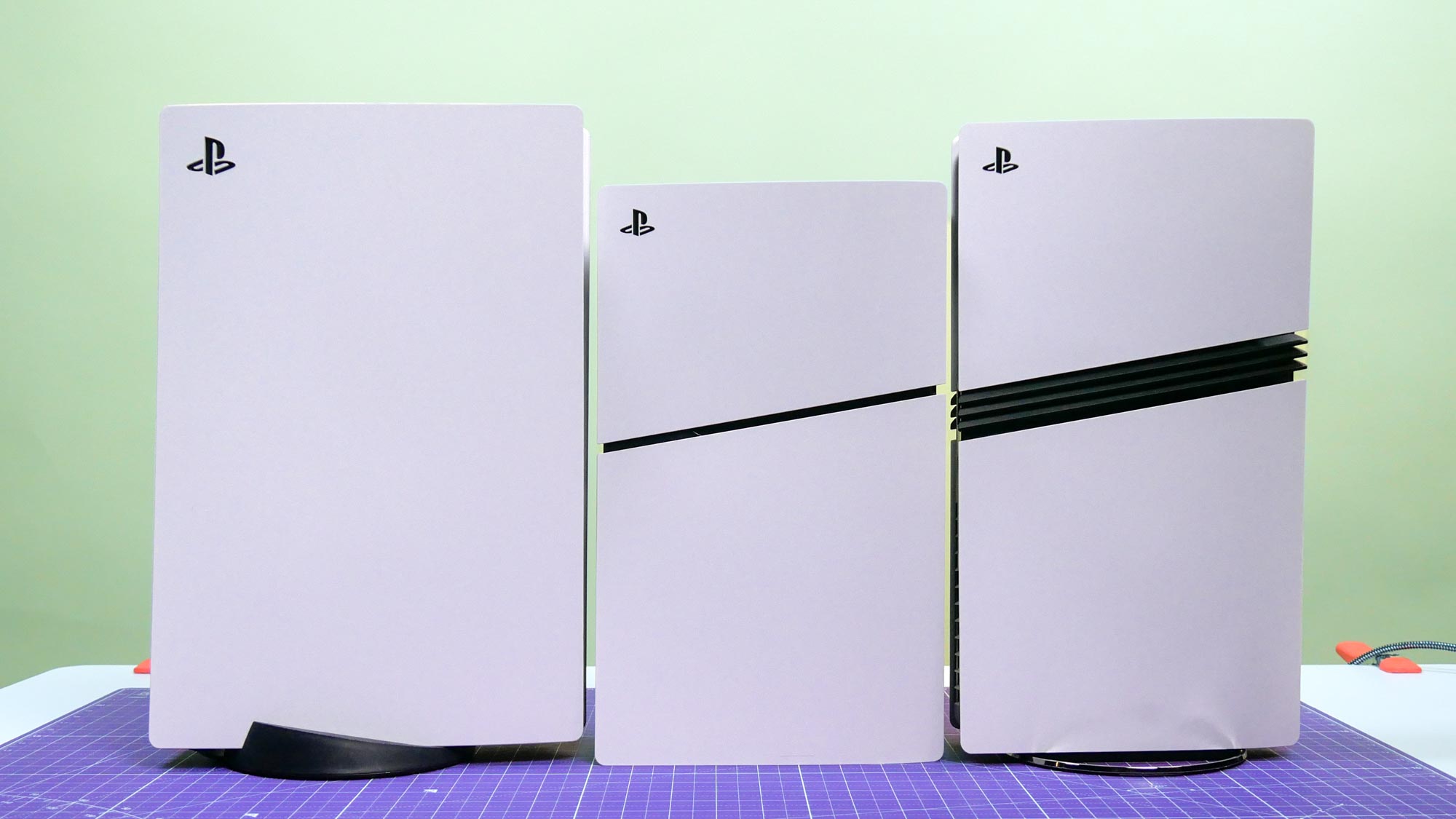
As a console-first player (sorry, to any members of the PCMR offended) I’m delighted that the PS5 Pro exists. It offers an improved play experience in loads of my favorite games of this generation, and will undoubtedly be the best place to play PS5 games going forward.
However, I can only recommend the PS5 Pro with some pretty significant caveats. The upgraded CPU (which packs 67% more Compute Units, 28% faster memory and enables up to 45% faster gameplay rendering) and PSSR features make a meaningful difference, but the bump in resolution isn’t so transformative that sticking with the base PS5 is ill-advised.
Much like the PS4 Pro before it, the PS5 Pro is a specialist product designed for the most committed console gamers who are happy to shell out $699 for a graphical upgrade that often leans closer to subtle than substantial. Plus, the lack of a disc drive is disappointing. When you’re purchasing a very premium product you likely want all the extras included.
The PS5 Pro is set to be where I play the vast majority of new releases for the rest of this console generation thanks to its unrivaled play experience. If you’re also the type of player who wants the best visuals and performance regardless of the cost, then I’d have no qualms about recommending the PS5 Pro. But more budget-conscious console players shouldn’t feel despondent about being stuck with a technically inferior machine. The PS5 Pro is a powerful upgrade to an already excellent console but it’s not an essential buy at this price.





